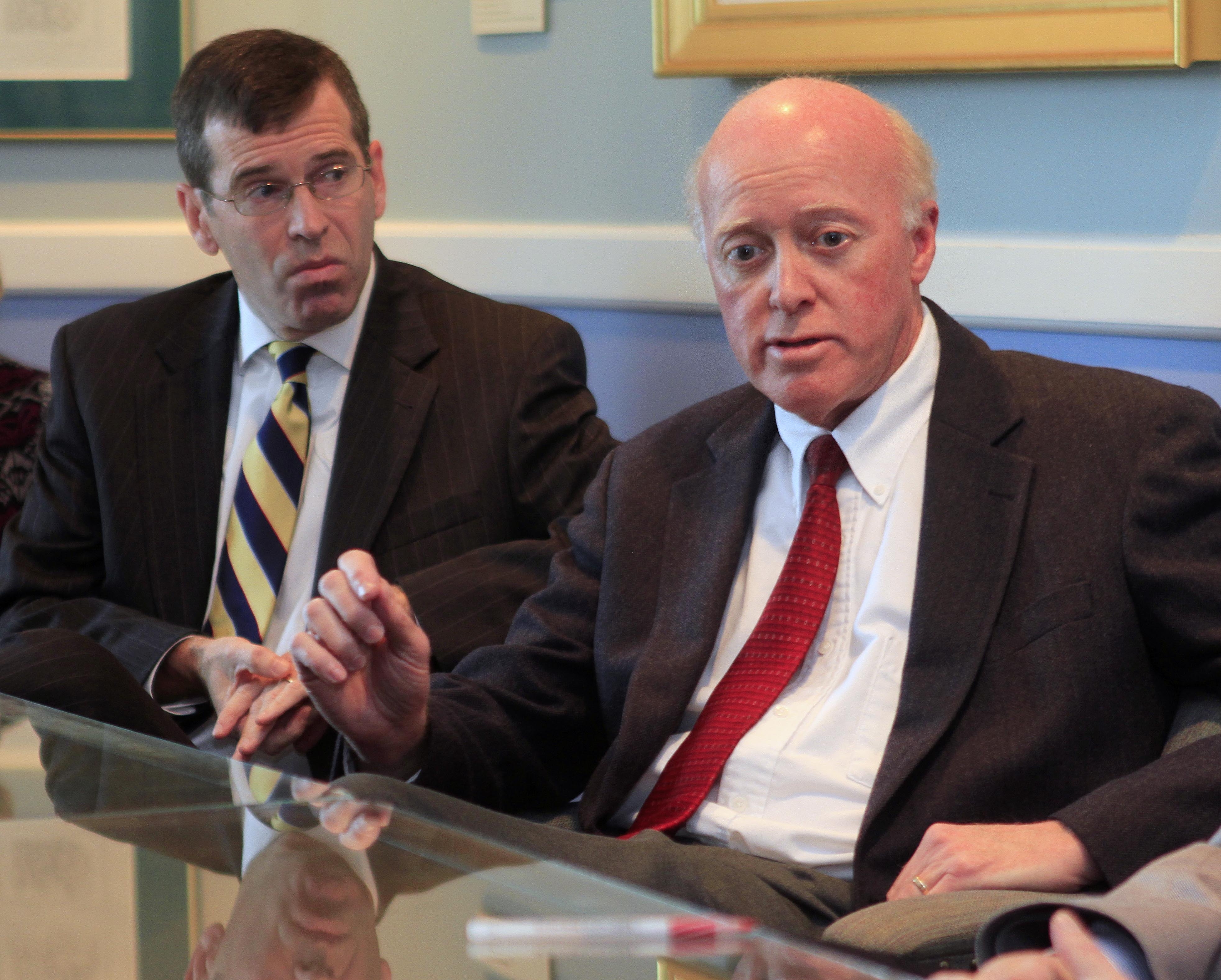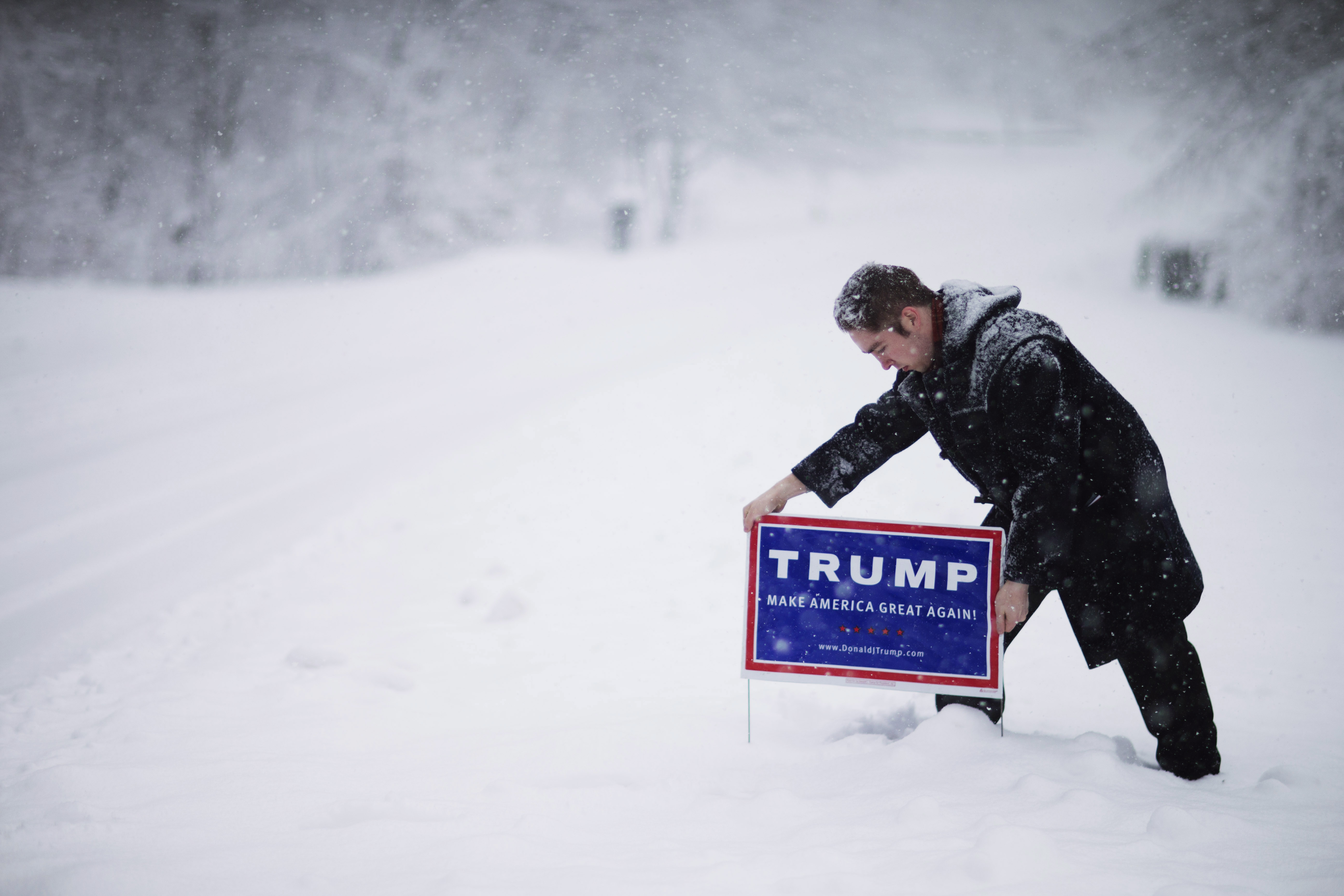NH SOS Bill Gardner Is a Democrat. His Decision to Join Trump’s Voting Commission Shocks His Own Party.

New Hampshire Secretary of State William ‘Bill’ Gardner is widely revered as a bipartisan state official. He has to be since he’s the longest-running secretary of state in the nation and is reelected to his post by an overwhelming majority of Republicans and Democrats alike.
And he takes his job very seriously. He’s in charge of the state department that oversees all general elections, primary elections, voter registration, and recounts within the state, including the First-in-the-Nation primary. With claims of voter fraud in the 2016 election being discussed often by President Donald Trump, Gardner has played a more active role in politics than simply overseeing elections. He’s become a fierce advocate for keeping New Hampshire’s primary status and for tightening voter laws to make sure Granite State voters are the only people voting in the state’s elections.
With that last issue, he’s siding with Republicans who are trying to get a bill passed this legislative session that would define the differences between “residency” and “domicile.” Yet, Gardner is actually a Democrat. He began his career in New Hampshire politics as a Democratic state representative before he was elected secretary of state in 1976 by the Legislature, and he has shown over the years that he’s not afraid to stand up to members of his own party for what he believes is right.
“We’re not denying anyone who shows up at the polls to be able to vote; we’re just saying we want to be able to let everyone know these votes are valid and true,” Gardner told lawmakers when Senate Bill 3, a voting reform bill, was introduced in March.
Democrats and outside groups are pushing the narrative that the GOP bill is a form of voter suppression and would especially discourage college students from voting. But Gardner said he would not support legislation if he thought it would hurt voter turnout.
In fact, he’s so serious about voter integrity that he agreed to join Trump’s national commission to review voting registration and voting processes used in federal elections. Trump ordered the creation of the Commission on Election Integrity that will be chaired by Vice President Mike Pence and co-chaired by Kansas Secretary of State Kris Kobach.
“There is a reason I’m doing this,” he told WMUR. “I care a lot about this. I’ve spent my whole life dealing with it, and it’s too bad that over half of the people in the country feel that there is vote fraud. Let’s find out why.”
Earlier this year, Trump claimed he lost the popular vote in the November election because “millions” of people voted illegally. He said that he lost New Hampshire’s four electoral votes because “thousands” of people crossed the Massachusetts border “on buses” to vote illegally.
Gardner disagreed with the president, saying there was no widespread election fraud in the state, but there were a few cases of people voting in New Hampshire who shouldn’t have in previous elections.
In 2014, Gardner said he saw illegal voting with his own eyes.
“We have drive-by voting,” he told the New Hampshire Union Leader. “The people that ran the polling place called me over, and said they had three people who didn’t know whether they could vote, and they wanted me to answer the questions. So I go over, there were two young men and a young woman, and they were AmeriCorps [volunteers].”
The woman was from Washington state and said she missed the deadline, but “really wanted to vote.”
“She said she was going back to Washington state the first of December. I said, well that should answer it for yourself as to whether this is now your home,” Gardner said.
She did not ultimately vote, but the two men did. He said he is essentially powerless in these situations unless the Legislature decides to act.
Under SB 3, they allow the secretary of state’s office to investigate a voter registrant’s information if local supervisors are unable to verify a voter’s domicile.
Looking at voter fraud or voter integrity (depending on who you’re talking to) is something Gardner has been wanting to look into for a while. When Republicans introduced a similar bill in the Legislature in 2015, former Democratic Gov. Maggie Hassan vetoed it, even though Gardner gave it his approval. He was also in favor of instituting a photo ID law when casting a ballot.
Democrats in the state are unhappy with Trump’s new commission, and are surprised that Gardner would agree to participate. The American Civil Liberties Union of New Hampshire called it a “sham” and a “kangaroo commission.”
“Signing this piece of paper will not make Mr. Trump’s false statements about voter fraud true,” said ACLU-NH Executive Director Devon Chaffee. “Our expectation is that, while on this commission, Secretary Gardner will only join conclusions in the commission’s final report that support voting rights and are based on actual proven facts, not unsupported speculation.”
House Democratic Leader Steve Shurtleff is calling on Gardner to assure that New Hampshire taxpayers are not paying for his travel or accommodation when he works on the commission.
“In addition, I would hope that your state time is not used in the pursuit of your work for the commission,” he wrote in a Friday letter. “As you are well aware, many Democrats and Republicans in New Hampshire believe that there is no validity to President Trump’s claims that there was voter fraud in NH. It is my hope that you will bear this in mind when presenting information or otherwise engaging your time on this commission.”
Sign up for NH Journal’s must-read morning political newsletter.




